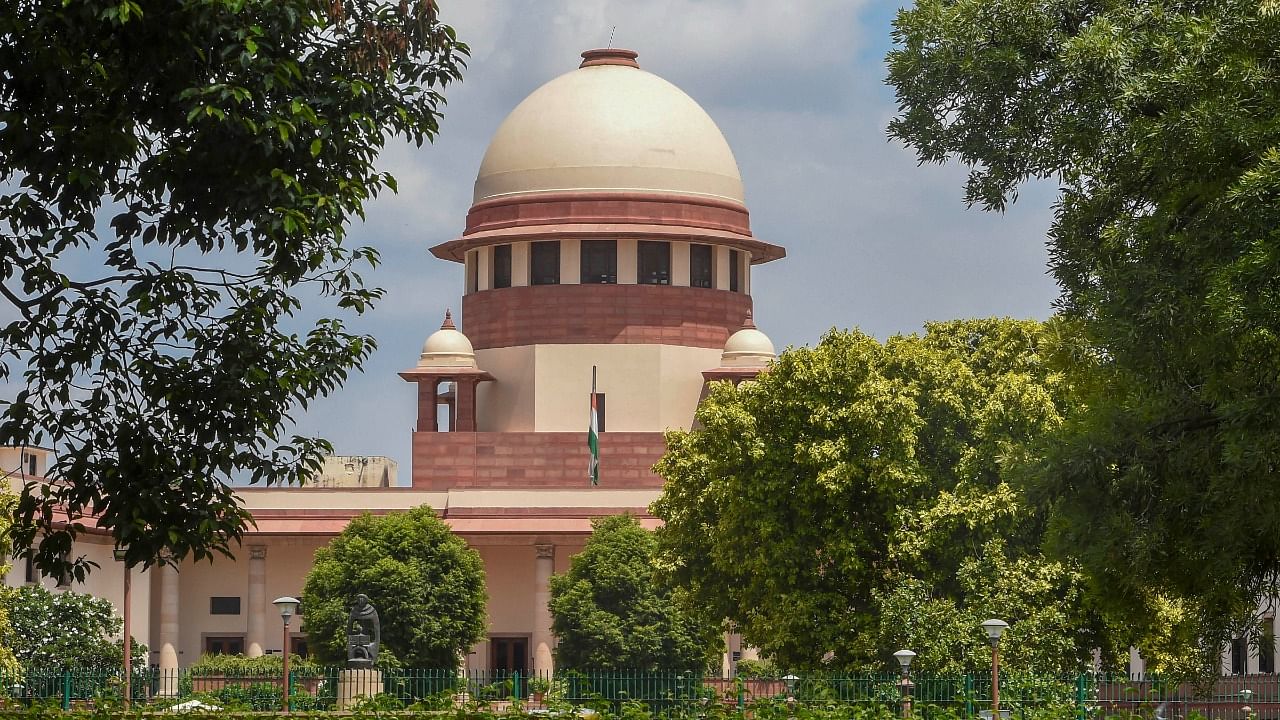
Expeditious disposal of cases must be read into the special statutes, including the Prevention of Money Laundering Act, as inordinate delay in the conclusion of the trial and the higher threshold for the grant of bail cannot go together, the top court said.
Credit: PTI File Photo
New Delhi: The Supreme Court on Thursday said the requirement of expeditious disposal of cases must be read into the special statutes, including the Prevention of Money Laundering Act, as inordinate delay in the conclusion of the trial and the higher threshold for the grant of bail cannot go together.
A bench of Justices Abhay S Oka and Augustine George Masih said a higher threshold is provided under Section 45(1)(ii) of PMLA, proviso to Section 43D(5) of the Unlawful Activities (Prevention) Act, 1967 and Section 37 of the Narcotic Drugs and Psychotropic Substances Act, 1985.
"The legislature has done so to secure the object of making the penal provisions in such enactments. For example, the PMLA provides for Section 45(1)(ii) as money laundering poses a serious threat not only to the country's financial system but also to its integrity and sovereignty," the bench said, in its judgment granting bail to former Tamil Nadu Minister V Senthil Balaji.
However, considering the gravity of the offences in such statutes, expeditious disposal of trials for the crimes under these statutes is contemplated, the bench said.
"Moreover, such statutes contain provisions laying down higher threshold for the grant of bail. The expeditious disposal of the trial is also warranted considering the higher threshold set for the grant of bail. Hence, the requirement of expeditious disposal of cases must be read into these statutes," the bench said.
"Section 45(1)(ii) does not confer power on the State to detain an accused for an unreasonably long time, especially when there is no possibility of trial concluding within a reasonable time," the bench said.
The court also pointed what a reasonable time is will depend on the provisions under which the accused is being tried and other factors.
"One of the most relevant factor is the duration of the minimum and maximum sentence for the offence. Another important consideration is the higher threshold or stringent conditions which a statute provides for the grant of bail. Even an outer limit provided by the relevant law for the completion of the trial, if any, is also a factor to be considered," the bench said.
The court also pointed out the existence of a scheduled offence is sine qua non for alleging the existence of proceeds of crime. A property derived or obtained, directly or indirectly, by a person as a result of the criminal activity relating to a scheduled offence constitutes proceeds of crime. The existence of proceeds of crime at the time of the trial of the offence under Section 3 of PMLA can be proved only if the scheduled offence is established in the prosecution of the scheduled offence, it said.
